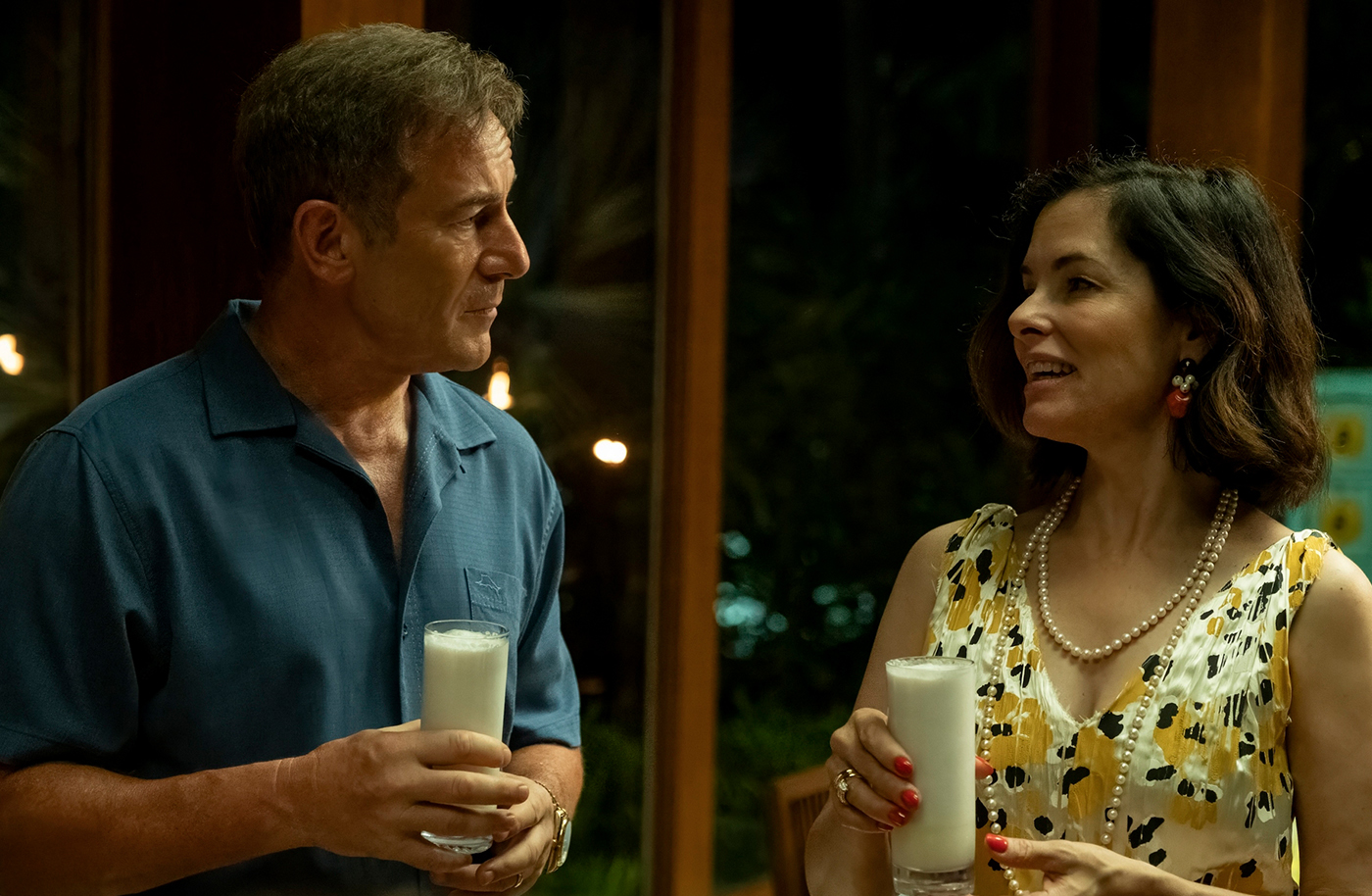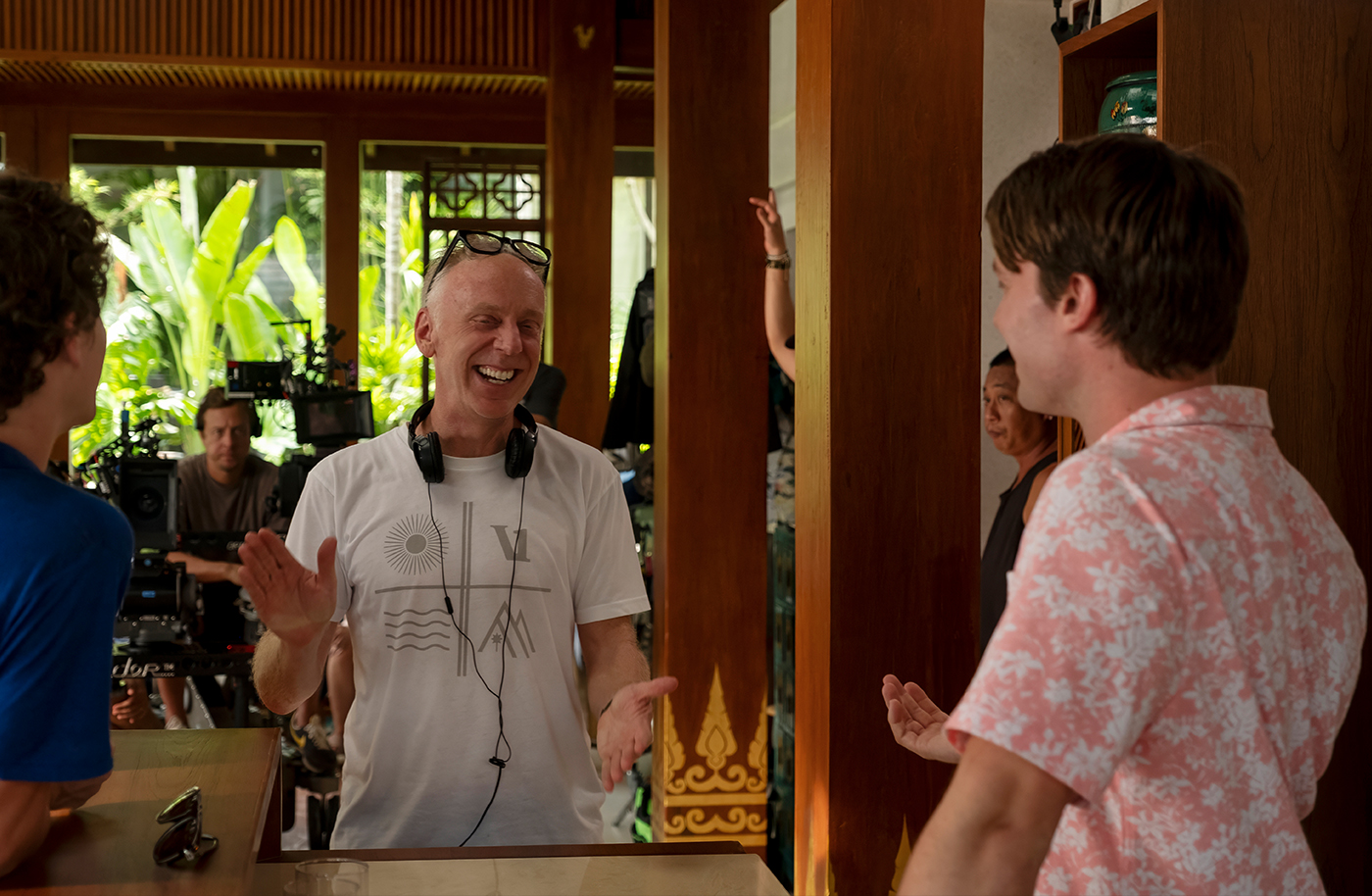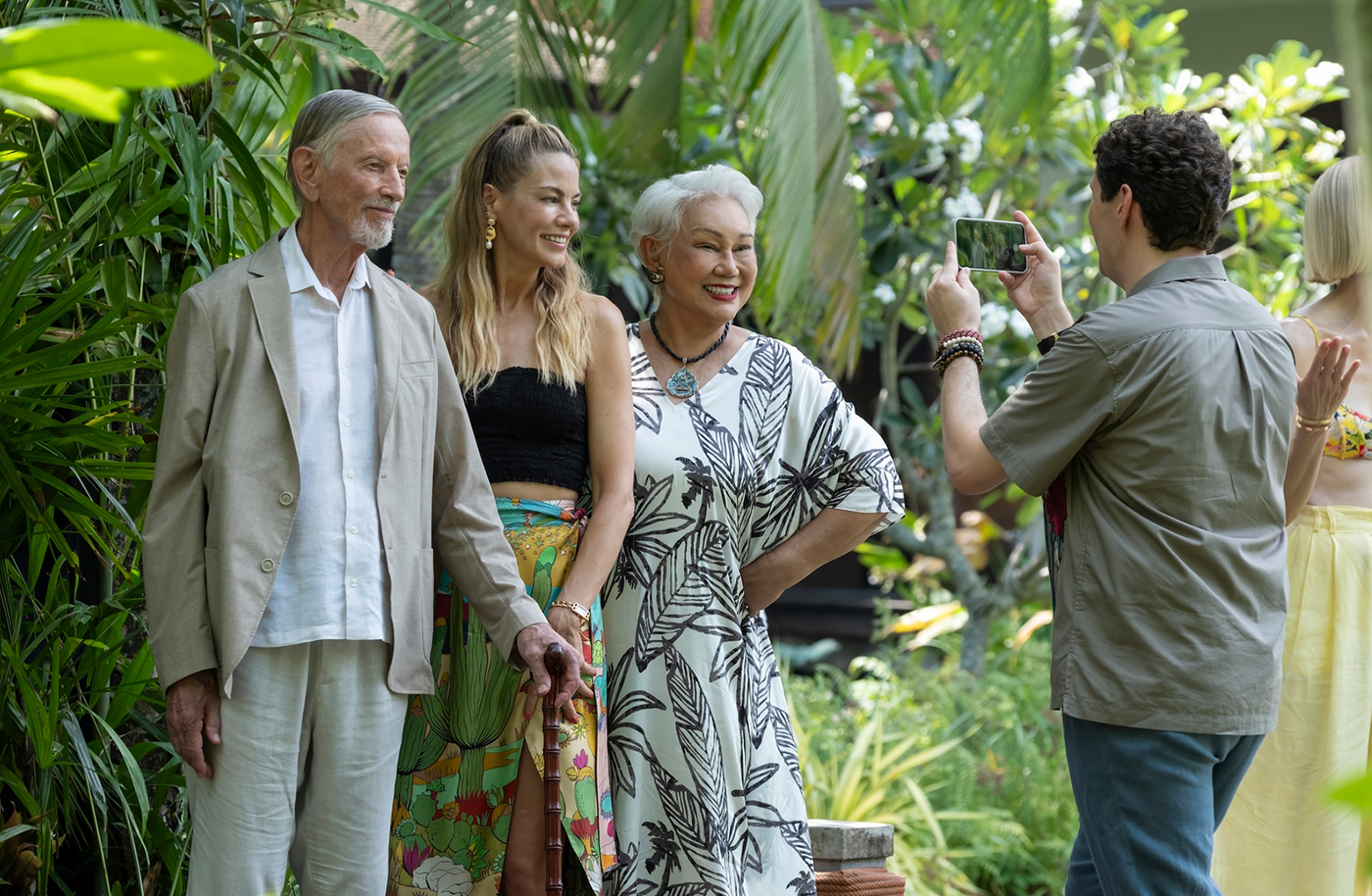AVID ARTIST
JOHN M. VALERIO, ACE
“What I love about Avid is how robust it is, how fluid everything is, how smooth it is, how I feel like I'm playing an instrument. I'm able to configure it and have it laid out in my own way, and I don't have to think about how to do something.”
EMMY® NOMINATED FOR:
The White Lotus, “Amor Fati”
CATEGORY:
Outstanding Picture Editing for a Drama Series
AVID PRODUCTS USED:
Media Composer
FAVORITE AVID TOOLS:
Match Frame, Reverse Match Frame, Extend Edit, Replace Edit, Animatte, Trim to Fill, Color Correction, Audio Tools
Shaping Tension and Humor in The White Lotus
In the scene when Timothy is mixing pina coladas and serving his family as he's going through the family suicide, the difficulty was striking the tone of tension and humor, something I don't think I'd ever done before in that way where you’re trying to find the beats of humor and tension in one scene. Usually it's one or the other and also this was the first time Timothy has made the decision he's actually going through with this. It had always been his fantasy but now this might actually happen.
First and foremost, finding what's true, what are we going to believe. I don't want to just inject something that's funny. It's going to totally throw off the tension of what's going on or the drama of what's happening. I can inject tension by how long you hang on a shot, what shot you focus on, the looks between him and his family as he's handing out the drinks, and how deliberate we are with a loaded handoff or a loaded eye exchange, sort of milking that. Is there anything there, a look that's funny from Victoria, a reaction that's funny from Saxon or Lochlan that I would believe in this moment, something that cuts through that tension.

Timothy Ratliff (Jason Isaacs) and Victoria Ratliff (Parker Posey) in The White Lotus
I labored over that scene for weeks, no months, during production. It was something that I cut when I received the dailies and I would go back every day and watch it, revise it, tweak it.
Editing Power Tools
I was on location during production, so I was able to see Mike (White, show creator, writer, director) every day. We would chat and he had ideas. There was constant dialogue about tone and striking that balance between darkness and humor. That dialogue was an amazing groundwork that helped us succeed once we were in the cutting room in post so we already knew where we wanted to be. We didn't have to do much heavy lifting because we had been doing it throughout. It definitely depends on the environment and who you're working for or collaborating with and how welcome they make you feel.

Mike White (Director, Writer and Creator) on the set of The White Lotus
What I love about Avid is how robust it is, how fluid everything is, how smooth it is how I feel like I'm playing an instrument. I'm able to configure it and have it laid out in my own way, and I don't have to think about how to do something. I just do it. It's this fluid connection from my creative mind right to what goes on the screen. What I love about Avid is I feel there are limitless possibilities in terms of how you set your system up and what works for you. We approach things differently and depending on how your mind works Avid gives you limitless possibilities to create the fluid system that makes it so easy.
The tools I use all the time: Match Frame, Reverse Match Frame, Extend Edit. I love Replace Edit. I love the Animatte tool. I do so much outside the box like compositing performances together with different takes and smoothing edits out. I like the Trim to Fill function. If I need to make that look or reaction last a hair longer or maybe they're going to blink or break character, it gives me freedom to manipulate the reaction time.
I love setting my different work palettes depending on what I'm doing, how quickly and easily I can go into Color Correction mode or into audio mode and expand if I want to tweak something and refine it. I go into audio tools quickly and easily, maneuvering around my workspaces if I want to go on dialogue track one, I can just hit it. I'm able to program my keyboard, go in and out of workspace modes and zones to change my focus from the picture and the color to the audio on this track or the sound effects or music and having as many layers of audio as I want and it's so robust, smooth and strong without any glitches.
Being able to share your projects, we're all working together and how quickly and easily my assistant, Zoe Bower, can jump in and out of what I'm doing, and I can pass something along to our other editors. Avid's unrivaled in that regard. Brilliant, smooth, beautiful. I want to deliver the cut to my director perfect.
Surprise Nomination to Career Validation
The White Lotus I knew was special. I didn't know it was going to become this huge thing where everybody online is writing their opinions on what's happening, and you have professors at colleges writing essays about what this means. My first nomination was a surprise, and it was one of the best days in my career. There are so many talented people who do great work. I was lucky my show had that awareness level so there were eyes on my work, and I was fortunate that I was recognized because no one thinks they're going to get nominated for anything.
Our episode has just about everything right: drama, humor, tension, action, characters with their own storylines. Each of these characters and their storylines are modular. You could move any scenes around and it'll still work because there's not a specific chain of events that need to occur. What was challenging and rewarding about our episode is being able to arrange these modular storylines in a way that is propulsive and engaging. It's unique because the location is a big character in the show. We want to balance serving the characters and how the location informs the characters, their motivations and the environment they're in.

Jim Hollinger (Scott Glen), Jaclyn Lemon (Michelle Monaghan), Sritala Hollinger (Patravadi Mejudhon) and Fabian (Christian Friedel) in The White Lotus
Valerio’s Career Trajectory
I wanted to be a great storyteller and filmmaker, and I found that I was going to get more work as an editor. It was important to me to get in that room, and learn from directors, writers and showrunners.
In the editing room you learn how to tell a story and so initially it was to just get in, become a better storyteller, and learn from people. Then I fell in love with it and with the control I have.
I started using Media Composer when I started taking film classes in 2001. The first show I did I was as a co-editor on an indie film called I Love Your Work. After that I got a show on Viva La Bam for MTV and it's funny how many people know that show and they're like, ‘I loved that show when I was a kid.’
One of my mentors always said, ‘You know editors, we're like chefs. Everybody goes out and brings us the ingredients and then we're in the kitchen making the meal.’ I thought that was great. I'm in there with all the ingredients I'm given, I have that control and I can make whatever meal I want based on the ingredients I'm getting. Then the owner of the restaurant will come in and be like, ‘Oh, this sucks. You need more pepper here, this stock is no good.’ I'll get some notes, and I'll try to make the meal more palatable for them but initially it's my meal.
Lessons from the Cutting Room
Relax, try to enjoy it, have fun. Don't let things beat you down because what we're doing is amazing. It's the best job ever so have that gratitude and just go with it.
When I was just starting out I thought the more edits I made the better editor I was. I thought I had to show people that I can make all these amazing cuts. I watch this stuff and I'm like, ‘Oh gosh, this is terrible.’ I should have known when not to cut is just as important as when and how you're cutting. Over time my work has become more, I would hope, elegant and less like, ‘Why are there so many cuts here,’ less of the flashiness in trying to shine a light on style and more like what an editor should be. What I should have known all along was being invisible, creating something that viewers are so immersed in they forget the artistry of the editor there.
About the Editor
John M. Valerio, ACE, is a distinguished film and television editor celebrated for his dynamic storytelling and precision cutting. He earned a Primetime Emmy Award in 2022 for Outstanding Single-Camera Picture Editing for a Limited or Anthology Series or Movie, for his work on The White Lotus, “Departures” episode, and a 2023 ACE Eddie Award in the Best Edited Limited Series category for the “Arrivederci” episode of The White Lotus: Season 2. Valerio’s versatile career spans notable TV series like The Old Man, Tokyo Vice, and Tom Clancy’s Jack Ryan, in addition to his long-running role editing all three seasons of The White Lotus. He has contributed as an editor on feature films such as Ferrari and Goodrich. A member of American Cinema Editors (ACE), Valerio’s work reflects both creative artistry and technical mastery.
Email Preferences | © 2026 Avid Technology, Inc. | Terms & Legal | Privacy

